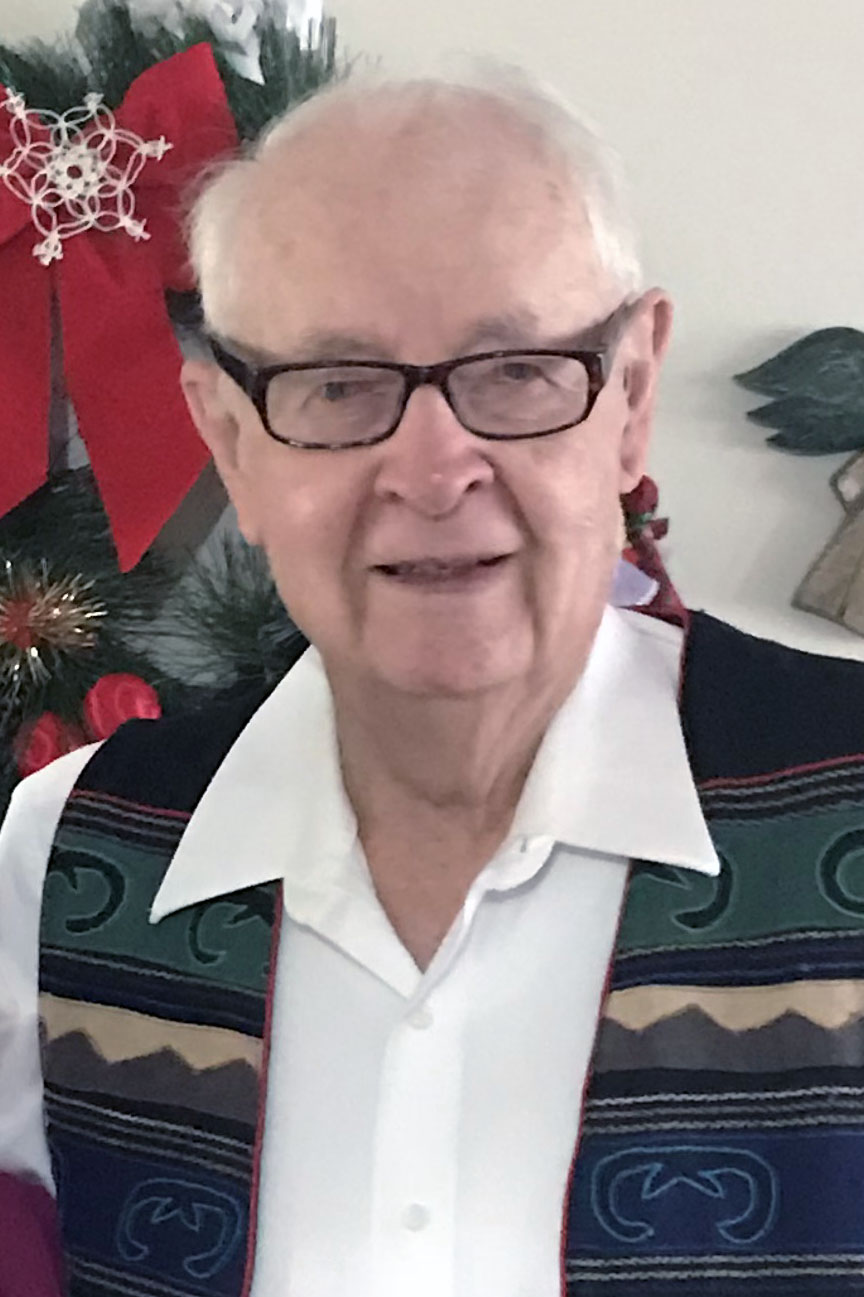Key points:
- As rural portions of the United States continue to shrink, access to services also diminishes.
- Since John Wesley’s day, Methodists have strived to address a variety of social concerns, including health care.
- Parish nurses can play a vital role in continuing ministries of healing.

Photo courtesy of the Rev. Mel West.
Commentaries
Starting with John Wesley, Methodists began an ongoing history of reacting to the human needs of society — called “social concerns.”
More than two centuries ago, as people moved westward in the United States, they began meeting needs by starting organizations and institutions: churches, schools and colleges, hospitals, residential homes and more. Many still exist.
In 1942, I met my future wife, Barbara, in Hendrix Hall in Columbia, Missouri. Built in 1924, Hendrix Hall housed young women coming to a university that lacked dormitories. It closed in 2021, having served its purpose. At one time, Missouri Methodism had 111 local schools, many in churches, and three colleges. The church schools eventually became public schools, and only one college — Central Methodist University in Fayette — remains.
Across the denomination, institutions are closing or downsizing.
What current social issue merits the attention, action and sacrifice of the people called Methodists? One is health care in rural America. Local parish nurses, I believe, can play an important role.
For more than half a century, much of the rural U.S. has experienced downsizing that has been highly detrimental to its institutions. Big farms, big machinery and big agriculture have dramatically changed the physical and social scene. Many rural counties have steadily lost population. Tens of thousands of rural churches, including 600 Methodist churches in Missouri, have closed. Other denominations and other states have similar reports.
A friend of mine grew up in a rural county-seat town in Missouri. Now living in New York, they wrote, “I am embarrassed to go back to my hometown. It is in such a shambles.” The population drain has created “deserts” of various kinds. We have “spiritual deserts” where small-membership churches have closed. We also have growing “health care deserts.”
Registered nurse and journalist Katy Kinner warned that rural hospitals throughout the U.S. face an unprecedented rate of closures, further endangering rural health. A recent report from the Center for Healthcare Quality, she said, showed more than 630 rural hospitals at risk of closure in the immediate and near future. This represents 30% of all rural hospitals.
Those likely to be hardest hit are in Alabama, Connecticut, Hawaii and Mississippi, with rates as high as 75%. Another writer also listed Florida, Georgia, Missouri, Oklahoma, Tennessee and Texas as endangered.
Two rural hospitals in Missouri closed in 2022, leaving behind a bankruptcy situation, unpaid bills and staff, a divided community and an empty building. To live in a health care desert is both frightening and dangerous. Pregnant women must travel long distances for basic services and often are miles from care when birthing time comes. Especially at risk are babies, small children and older adults who may live far from clinics and hospitals.
Subscribe to our
e-newsletter
When emergency needs occur, immediate help may be inaccessible. A helicopter trip can cost thousands of dollars. An ambulance is slow and ties up equipment that may be needed elsewhere. Colds or flu, high blood pressure, minor injuries and mental health needs often go untreated or emerge later as serious problems. Vaccinations may be overlooked.
An associated dilemma is that the health care desert often discourages professionals such as doctors, dentists, veterinarians and teachers from living in certain areas. Conversely, patients may move in search of better health care and other amenities.
Churches are, and always have been, places of healing. Wesley wrote often and much about physical and mental health, distributing 67 pamphlets about various ailments and their treatments. He showed particular care for the disadvantaged of society and wanted to ensure that all had access to and understanding of the medical advice of the times.
Today’s parish nurses combine ministry with the art and science of nursing, ever mindful of the strong relationship between faith and health. Through faith, nurses understand the meaning of health; harmony of body, mind and spirit; and living in relationship with God and one another.
Parish nurses care for members of a parish or a faith community. Integrating faith and healing to promote wellness, these registered nurses address health issues and needs. They might administer prescribed injections, arrange third-party screenings and tests, reduce anxiety by explaining procedures, monitor medication interactions, conduct home visits, do monthly blood-pressure checks, maintain first-aid kits, network with local hospitals and other service providers, schedule blood drives, create bulletin boards or write monthly newsletter articles on featured areas of concern, and be on call during worship services and for special events and activities.
Staying current on continuing education and certification, parish nurses can do only that for which they are authorized. A nurse practitioner who has a connection with a local doctor and hospital, for example, can expand the community’s service.
In Matthew 9:35-36a, we read: “Then Jesus went about all the cities and villages, teaching in their synagogues, and proclaiming the good news of the kingdom, and curing every disease and every sickness. When he saw the crowds, he had compassion for them.”
Imagine Methodism assuming its biblical, historic and Wesleyan concern for the physical and spiritual health of God’s people in their congregations and communities. That’s the call of parish nursing.
West, 99, a retired United Methodist pastor, lives in Columbia, Missouri. The founder of Mobility Worldwide, he has been honored for his commitment to humanitarian work.
News contact: Joey Butler or Tim Tanton at (615) 742-5470 or newsdesk@umcom.org. To read more United Methodist news, subscribe to the free Daily or Friday (weekly) Digests.



